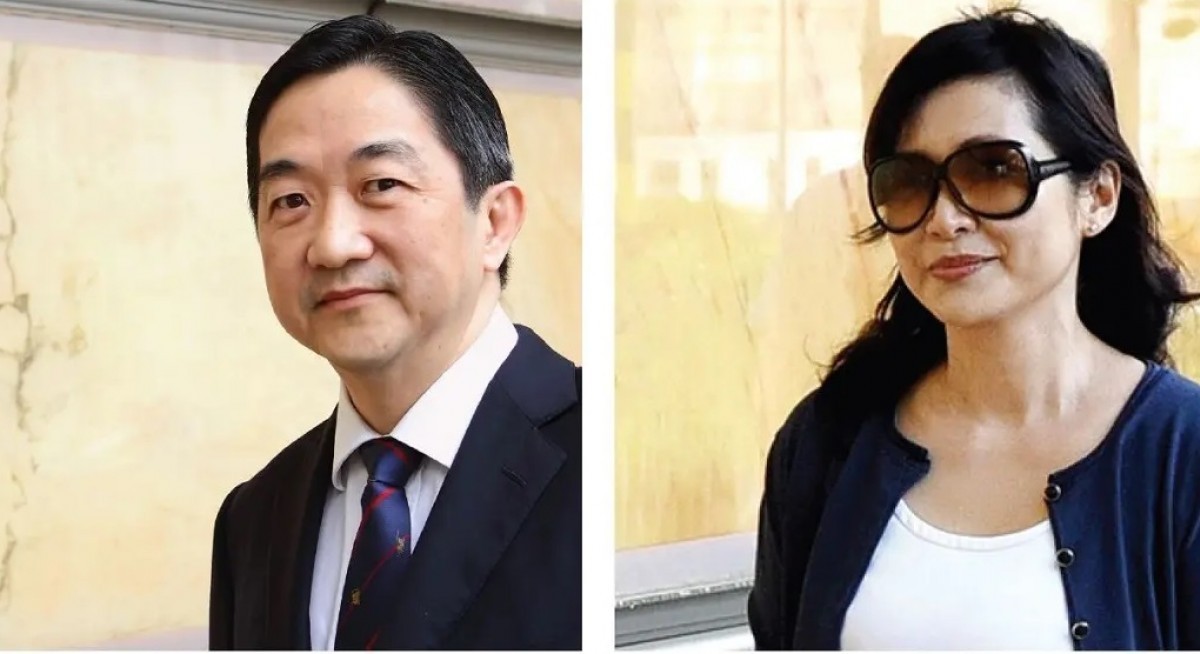Quah, who began serving her 20-year sentence on Oct 17, arrived in court handcuffed and dressed in a purple prison jumpsuit, taking her place in the dock beside Soh, who had been brought in earlier. Her toddler grandson was briefly present in the public gallery with his parents before proceedings began. Soh is serving a 36-year term.
Between August 2012 and October 2013, both of them orchestrated trades through 189 accounts across 20 financial institutions, many of which had been misled into extending financing for the scheme.
In today’s hearing, Chief Justice Sundaresh Menon, Justice Tay Yong Kwang and Justice Andrew Phang Boon Leong considered submissions from both the prosecution and defence on whether the sentences handed down by High Court Judge Hoo Sheau Peng ought to be revised.
Senior counsel N Sreenivasan, Soh’s lawyer, said the court should first assess his client’s sentence against the maximum penalties for the key offences to see if they are excessive.
Even accepting the trial judge’s findings on the scale and duration of the scheme, some of the wrongdoing stemmed from the private motives of other individuals and should not automatically be attributed to Soh for sentencing, Sreenivasan argued.
See also: Penny stock masterminds lose bid to overturn convictions
This was a reference to the four individuals known as the Manhattan House Group – Dick Gwee, Ken Tai, Henry Tjoa and Gabriel Gan – who actively traded the three stocks from a rented office in Manhattan House on Chin Swee Road.
Sreenivasan also cited other Securities and Futures Act cases to question whether Soh’s 36-year sentence was justified.
One was the 1995 collapse of Barings, the UK’s oldest merchant bank. The lender imploded after trader Nick Leeson hid over US$1 billion in losses through unauthorised trades. Leeson fled Singapore but was caught, extradited and jailed for 6½ years. He was released early for good behaviour and health issues.
See also: Final arguments heard: Apex court's verdict looms for John Soh and Quah Su-Ling
“John Soh got seven times more prison time than Nick Leeson. Is that appropriate legal principle? I don’t think it is,” Sreenivasan said. “When we look at totality and proportionality, it gives us some indication of scale, appropriateness, professionality.”
The Senior Counsel added that Soh did not trigger the Oct 4, 2013 collapse of the three stocks, noting that public queries from the Securities Investors Association (Singapore) and the Singapore Exchange over their steep run-up were key catalysts.
“We know the causes of the harm, and those causes of the harm are not causes that he should be punished for.”
Quah’s lawyer apologises
When his turn came, Quah’s lawyer S Nithyanantham started by admitting to “improper conduct” on his part during earlier appeal proceedings.
This included alleging that the trial judge was biased against his client, had shown “excessive interference” in the trial, and had inferred guilt on Quah after finding Soh guilty of witness tampering.
“All I can do is stand here and say that I apologize profusely. If it has been taken that I have insulted or I have been rude to the court, again, as an officer of the court, I apologize profusely,” Nithyanantham said.
To stay ahead of Singapore and the region’s corporate and economic trends, click here for Latest Section
CJ Menon had harsh words for Quah’s lawyer.
“I don't like to take a harsh stance against counsel trying to do their job, and when I'm concerned with the line that they take, I try to make it clear to them if I think that they're going down an ill-advised path. Now that's exactly what happened, but you persisted in the position more than once after you had been cautioned,” he said.
In response, Nithyanantham said he was “ready to face whatever action that your Honours deem fit”.
DPP: ‘A house of cards’
The prosecution, led by Deputy Public Prosecutor (DPP) Jiang Ke-Yue, said none of the other market manipulation cases cited by Soh’s lawyer, including the collapse of Barings Bank, came close to the BAL scheme.
“None of them can compare to this case….and in those cases, it was fortunate that those schemes were small enough such that no crash happened or the harm to the market was more limited,” DPP Jiang said.
“But in this case, they have built a house of cards from scratch, and now they want to blame the wind when the house collapses. That cannot be the case.
“They were in control of this scheme. They built it from scratch. They should be responsible for the outcome.”
Given the magnitude of the BAL saga, DPP Jiang added that “it matters not that the sentences are then stacked together to obtain a longer sentence that exceeds the maximum (for each charge).”
The prosecution also said Quah played a far larger role than she claimed.
As pointed out by the trial judge, DPP Jiang said Quah was involved in the scheme from its inception and, among other things, oversaw trading operations, sourced numerous trading accounts, and kept a record of all transactions.
After hearing both sides, CJ Menon said the court will reserve judgment and issue its decision at a later date on whether the duo’s sentencing will be adjusted.




